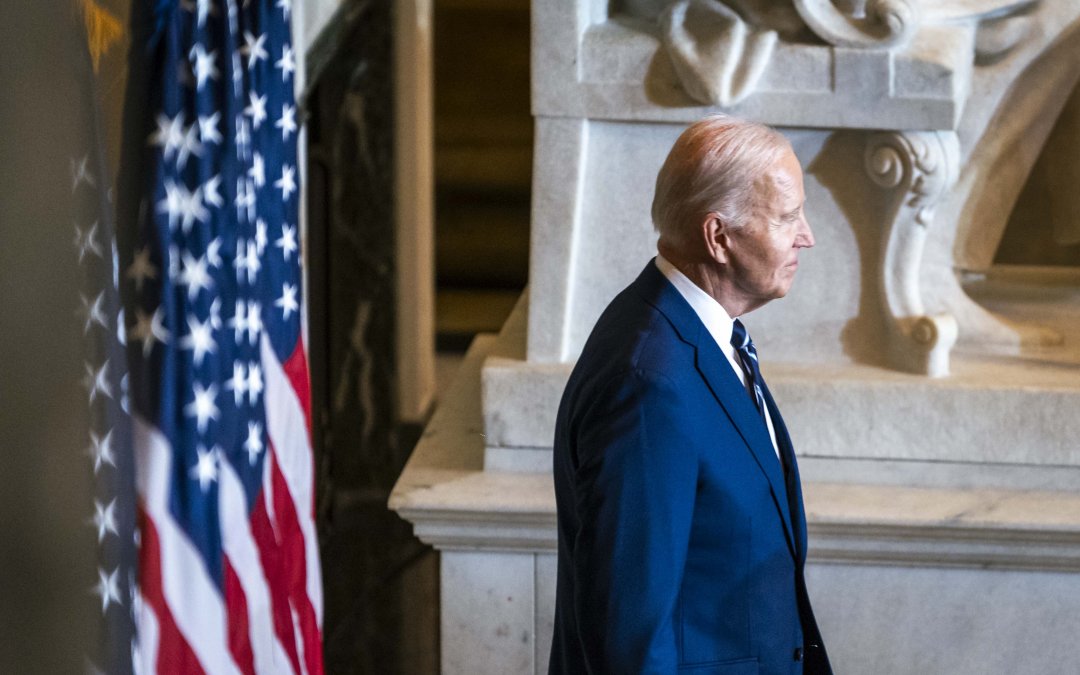WASHINGTON – The Biden administration is still hesitant to take a definitive stance on whether to lift restrictions preventing Kyiv from using U.S.-made long-range missiles to strike military targets deep inside Russia, despite months of pleading from Ukrainian President Volodymyr Zelensky.
U.S. President Joe Biden is under increasing pressure as Kyiv struggles to hold Moscow’s forces back in eastern Ukraine. Yesterday, the country’s soldiers were forced to withdraw from Vuhledar, a town in the Donetsk region viewed as a critical stronghold at the intersection of Ukraine’s eastern and southern fronts, putting an end to two years of fighting and underscoring Ukraine’s need for assistance as the war is nearing its third anniversary.
A potential decision seemed imminent in recent weeks, with Secretary of State Antony Blinken visiting Kyiv and Zelensky meeting with leaders in Washington within a span of a month.
But despite the time pressure and the extensive diplomatic efforts, Biden’s decision on whether to lift the restriction has yet to come.
“There is hope that, rather than a public announcement that Ukraine’s permissions have changed, we would learn this just from seeing a strike into Russia, which is actually how some of the other weapons deliveries have played out, but right now, he has not made that decision,” said Shelby Magid, a deputy director at the Atlantic Council’s Eurasia Center.
Experts say the reason Biden hasn’t made a decision boils down to Russia’s nuclear threats, the imminent presidential election and the risk that lifting restrictions may still not be enough to boost Ukraine’s military position.
Threats of nuclear escalation
Russian President Vladimir Putin’s continuous nuclear threats are among the reasons behind Biden’s hesitation to lift the restrictions. Moscow could view the move as proof that “the West is inching into directly going to war with Russia” and show its teeth in response, according to Richard Betts, a senior national security fellow at the U.S.-based think tank Council on Foreign Relations.
“At the low end, it might be a nuclear test, a symbolic warning that there could be more to come,” he said. “Or worse than that, [it might be] the use of five or ten tactical nuclear weapons in Ukraine.”
Feeding into the theory, Putin said last Wednesday that Moscow could use nuclear arms if it was struck with conventional missiles under newly proposed amendments to Russia’s nuclear doctrine. He added, “aggression against Russia by any non-nuclear state, but with the participation or support of a nuclear state, be considered as their joint attack.” The statement came amid Zelensky’s visit to the U.S. and appeared to be a straight-forward warning referencing the scenario if Kyiv’s request is granted.
But some say the threats are exaggerated.
“Other countries and some of our European leaders have the same access to information and the same analysis, and they don’t have these concerns,” Magid said. “I think the U.S., we’re getting in our own way.”
Fears of sabotaging Harris’ campaign
The main reason behind Biden’s hesitation to lift the restrictions is the upcoming elections, according to Dan Whitman, a senior fellow at the U.S.-based Foreign Policy Research Institute.
“We’ve seen these red lines don’t really exist,” he said. “President Biden just doesn’t want to do anything that would compromise the victory of Kamala Harris.”
According to the Pew Research Center, foreign policy is among the top issues in the upcoming election, with 62% of registered voters saying it is “very important” to their vote. With that, more registered voters express confidence in former President Donald Trump’s foreign policy than in that of Vice President Kamala Harris.
“If Harris had a clear lead, Biden would have more freedom to make global strategic decisions,” Whitman said. “He doesn’t have much freedom until November 5 – maybe on November 6, he lifts all the restrictions.”
Uncertainty whether the risk is worth the outcome
Another factor in Biden’s decision-making—or lack thereof—on the matter is that green-lighting the use of U.S.-based missiles might not be enough to significantly change Ukraine’s military position.
“It’s not clear that using the longer-range weapons will make a huge difference in the war: the United States doesn’t have many of them to give, and this is a war of attrition in which Russia has a natural advantage,” Betts, an expert in military strategy and intelligence, said. “In a strictly military sense, it would help in the short term for Ukraine, but it’s not likely to be a radical change that’s going to tilt the balance.”
Still, others argue that Ukraine’s ability to strike deeper into Russian territory could have significant tactical advantages.
“No one decision or one system will completely change the course of the war immediately and end the war,” Magid said. “But the ability to hit more into Russia and hit where the military sites actually are – the airfields, the ammo and logistics sites – would immediately lessen how many strikes are coming against Ukraine.”

